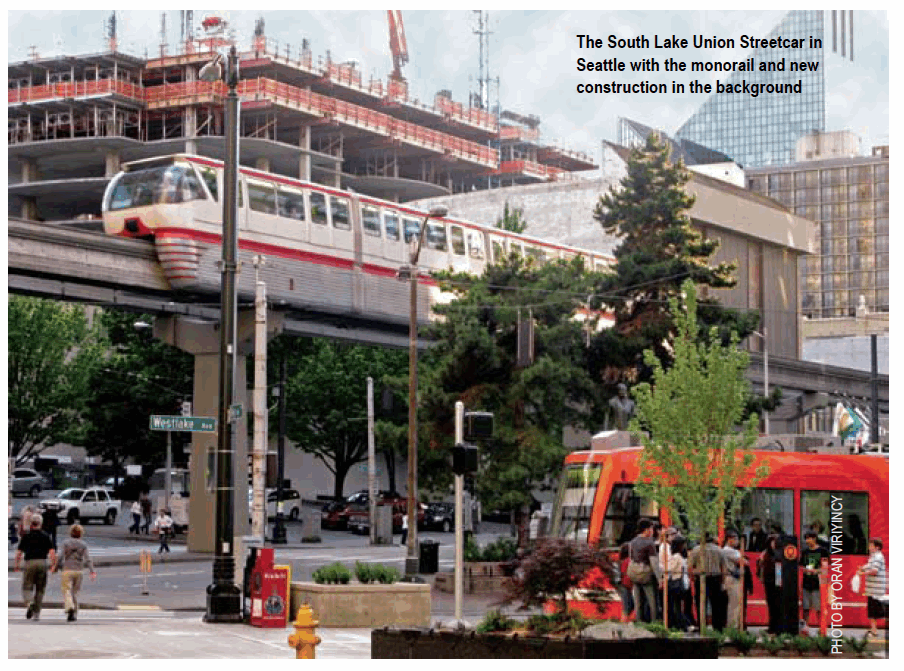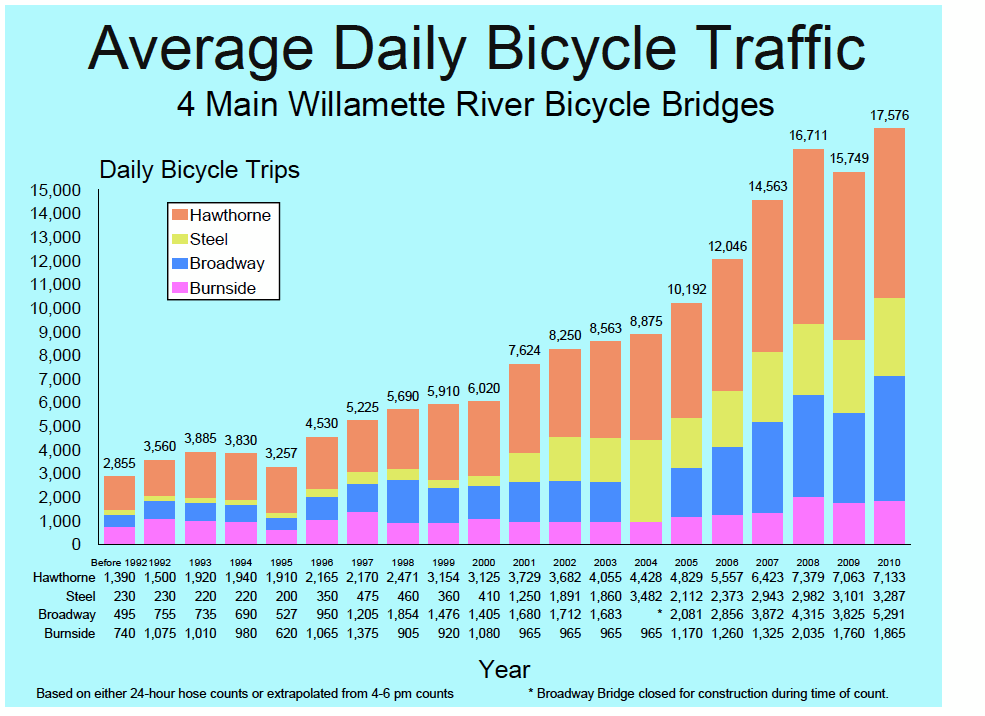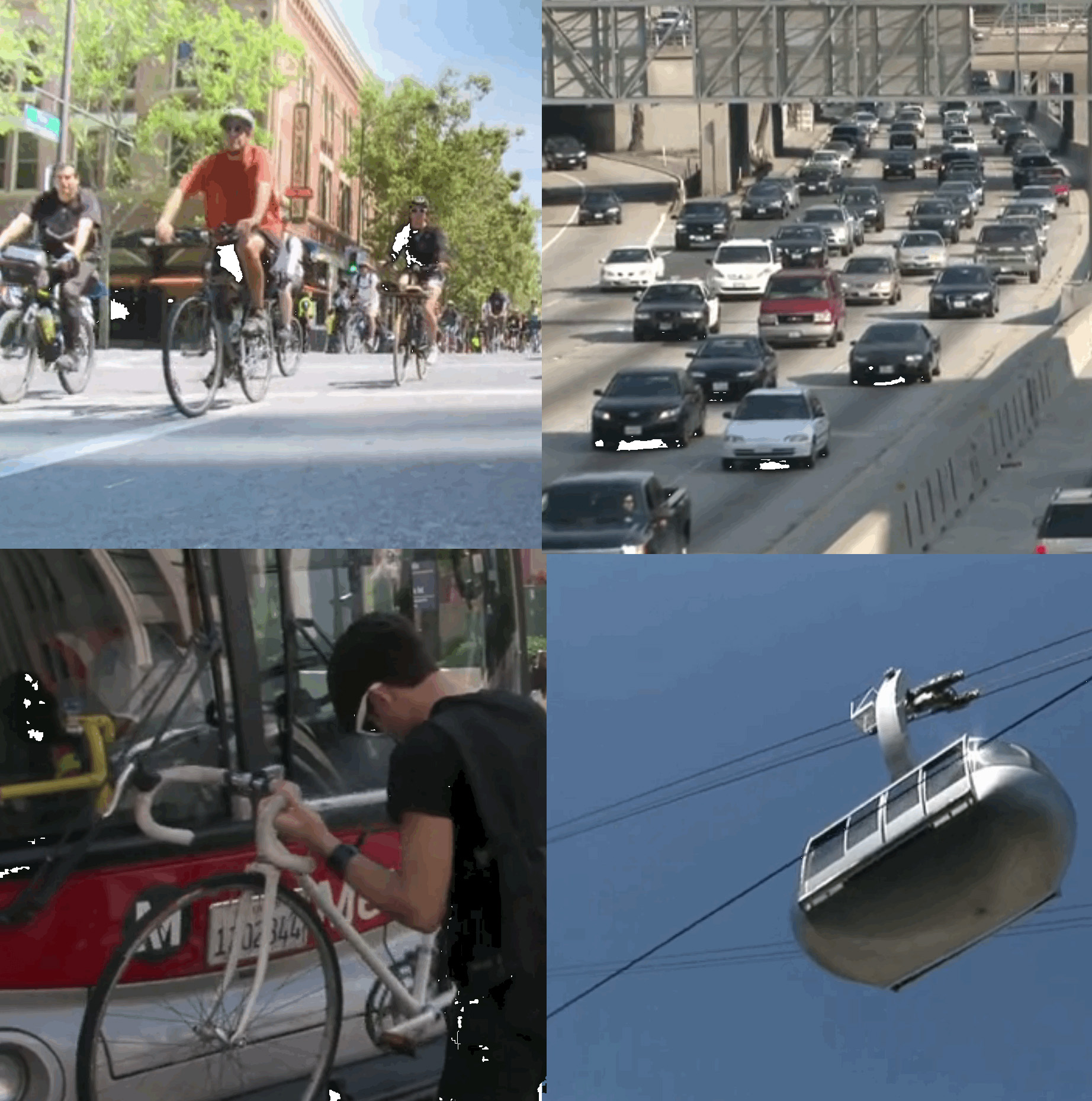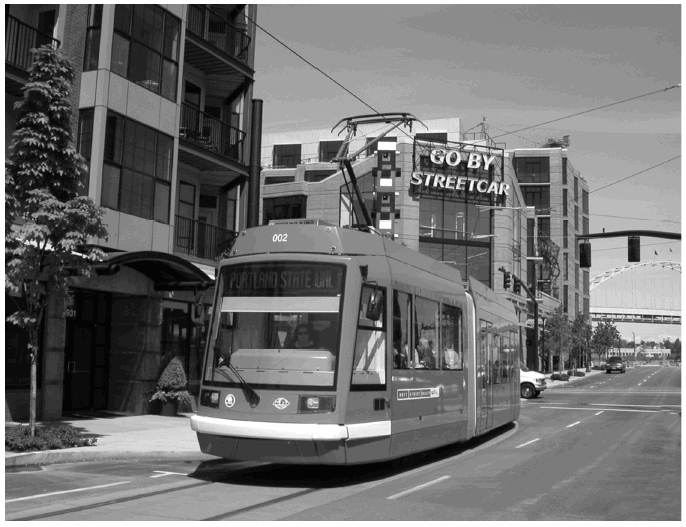MINETA TRANSPORTATION INSTITUTE
In 2006 and 2007 the state of Oregon conducted a groundbreaking mileage fee pilot program. The program responded to a national concern that fuel taxes will stop serving as a reliable revenue source as a large proportion of the vehicle fleet transitions to running on little or no petroleum-based fuel. To prepare Oregon for this future threat to its transportation revenues, the state legislature authorized a pilot program to test mileage fees as a replacement for the state fuel tax.
Posts Tagged ‘Portland’
The Intersection of Urban Form and Mileage Fees: Findings from the Oregon Road User Fee Pilot Program
Friday, March 11th, 2011Connected Cities
Thursday, December 23rd, 2010
“I am convinced that unless one understands the grain of the city at the physical level, the structure of the spaces and buildings, and how to make them seamless and connected – it is very difficult to create cities which are integrated, connected and sustainable for the future.”
-Ricky Burdett, Director, Urban Age
Transit Corridors and TOD: Connecting the Dots
Wednesday, December 22nd, 2010
CENTER FOR TRANSIT-ORIENTED DEVELOPMENT
The demand for transit across the U.S. is growing, and more and more transit corridors are proposed and built every year. In 2008, 78 regions in 37 states had proposed 400 transit projects worth $248 billion, and these numbers have continued to rise…But many regions start to build transit networks with a single major corridor, and with so many stations opening every year, there is a growing need to understand how corridor planning can facilitate not only successful transportation outcomes but also successful transit-oriented development (TOD).
PORTLAND, OR: BICYCLE COUNT REPORT 2010
Wednesday, November 24th, 2010
PORTLAND BUREAU OF TRANSPORTATION
Annual bicycle counts constitute one of the City’s three principal means of assessing progress in its efforts to
make the bicycle an integral part of daily life in Portland…The most significant finding of the 2010 count is the continuation of the two-decade upward trend of bicycle use in Portland.
Video: Portland Tram
Friday, November 19th, 2010First ride in the Portland Tram next to our house.
-workout228 on YouTube
Streetfilms: Voices from the Rail~Volution (2010)
Monday, October 25th, 2010
Streetfilms was out in Portland at this year’s Rail~Volution 2010 trying to get a pulse on the transportation world by talking to a healthy dose of this year’s attendees which includes advocates, bloggers, transportation planners, industry spokespeople and members transportation agencies across the country.
View this complete post...Relationships Between Streetcars and the Built Environment
Wednesday, September 29th, 2010
TRANSIT COOPERATIVE RESEARCH PROGRAM
In the past 20 years, numerous cities have planned and implemented new rail transit systems. This movement has coincided with other urban regeneration trends, bringing new life to urban centers and advancing strategies to manage growth that promote more efficient patterns of development. Various forms of heavy rail, light rail, and streetcar systems have been built, many with robust ridership and popularity, owing to a rediscovery of this form of transportation, as well as concerns about growing traffic congestion, volatile fuel prices, and climate change.
Moving Forward: A Better Way to Govern Regional Transportation
Tuesday, March 16th, 2010CITY CLUB OF PORTLAND
Is the governance structure for transportation (including planning, allocation of federal and state funds to specific projects, and other top-level decision making) in the Portland metropolitan region adequate to meet the needs of a region facing significant growth, aging infrastructure, and climate change?
U.S. Parking Policies: An Overview of Management Strategies
Wednesday, March 3rd, 2010INSTITUTE FOR TRANSPORTATION AND DEVELOPMENT POLICY
The relationships between parking infrastructure and transportation choices are as important as that between road infrastructure and transportation choices. Yet research on roads abounds while there is very little on parking.
Follow InfrastructureUSA
CATEGORIES
- Accountability (219)
- Aging Infrastructure (758)
- Aviation (130)
- Biking (324)
- Bipartisan (271)
- Bridges (493)
- Broadband (57)
- Buses (160)
- Carbon Tax (22)
- Clean Air (182)
- Climate Change (202)
- Competitiveness (230)
- Congestion (327)
- Dams (77)
- Democrat (123)
- Drinking Water (192)
- Economic Stimulus (276)
- Employment (207)
- Energy (585)
- Environment (615)
- Equity (239)
- Funding (888)
- Global (205)
- Great American Infrastructure (33)
- Green (295)
- Guests on The Infra Blog (300)
- Hazardous Waste (27)
- High Speed Rail (224)
- Highway (785)
- Inland Waterways (204)
- Jobs (251)
- Land Use (99)
- LEED (28)
- Levees (42)
- Local (1,910)
- National (1,527)
- Policy (1,122)
- Pollution (215)
- Private Investment (213)
- Public Opinion (189)
- Public Parks & Recreation (198)
- Public Transportation (1,028)
- Racism (6)
- Rail (506)
- Recession (65)
- Recovery (218)
- Republican (109)
- Roads (1,120)
- Schools (81)
- Seaports (69)
- Smart Grid (98)
- Smart Growth (442)
- Solid Waste (26)
- Sustainability (767)
- Tax (112)
- Technology (397)
- Telecommunications (46)
- Transit (1,333)
- Urban Planning (983)
- Wastewater (183)
- Water Treatment (168)
Video, stills and tales. Share images of the Infra in your community that demands attention. Post your ideas about national Infra issues. Go ahead. Show Us Your Infra! Upload and instantly share your message.
Is the administration moving fast enough on Infra issues? Are Americans prepared to pay more taxes for repairs? Should job creation be the guiding determination? Vote now!
What do the experts think? This is where the nation's public policy organizations, trade associations and think tanks weigh in with analysis on Infra issues. Tell them what you think. Ask questions. Share a different view.
The Infra Blog offers cutting edge perspective on a broad spectrum of Infra topics. Frequent updates and provocative posts highlight hot button topics -- essential ingredients of a national Infra dialogue.
Dear Friends,
It is encouraging to finally see clear signs of federal action to support a comprehensive US infrastructure investment plan.
Now more than ever, our advocacy is needed to keep stakeholders informed and connected, and to hold politicians to their promises to finally fix our nation’s ailing infrastructure.
We have already engaged nearly 280,000 users, and hoping to add many more as interest continues to grow.
We require your support in order to rise to this occasion, to make the most of this opportunity. Please consider making a tax-deductible donation to InfrastructureUSA.org.
Steve Anderson
Managing Director
SteveAnderson@InfrastructureUSA.org
917-940-7125













 RSS Feed
RSS Feed